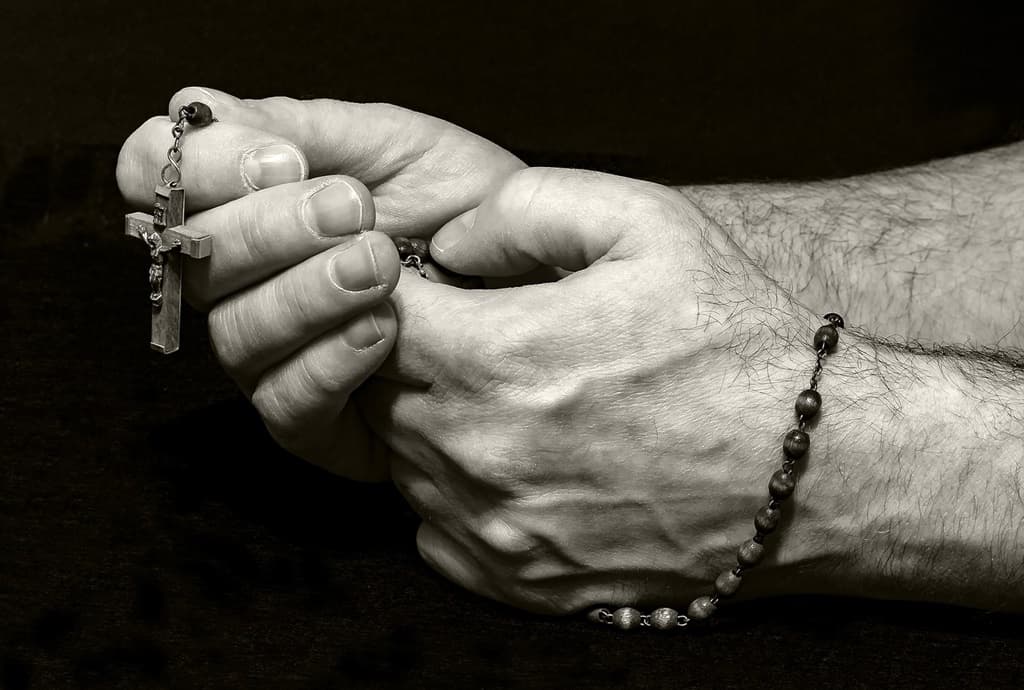
Spiritual exercise that constitutes the ascetical life is an essential element in the life of a Christian, as emphasized in both the Bible and in the Holy Tradition of the Church. Those who willingly indulged in spiritual exercise throughout their lives reached the heights of holiness. Monks and nuns who take refuge in monasteries or in sketes and in hermitages practice it with special diligence. Many from the ranks of the monastics, through their practice according to Gods will, became Saints.
Spiritual exercise, however, is not only the occupation of monks, but also of every faithful Christian, even though it might differ in its external forms. Due to the fact that the conditions in which the monk lives are very different from the conditions in which the clergyman or the layman finds himself as a member of society with other obligations and challenges. Moreover, it would be wrong, for example, for the head of a family to imitate – due to deep admiration – the strict practice of monks and neglect his duties within his family as a husband and a father.
The spirit and purpose of spiritual exercise are the same for everyone. The Holy Fathers of our Church sacrificed a lot of time and energy in order to succeed in the ascetical life, in the struggle against the passions, in the acquisition of the virtues and in the spiritual struggle of the believer, in order to reach sanctification and deification. Many wonderful works of the Fathers have been published either in the form of books, such as "THE LADDER " of St. John of Sinai, or in the form of homilies and quotes. These are very useful to be read and acquainted with.
We will limit the exposition of spiritual exercise due to the enormity of the subject to the investigation of the powers of the soul, which we ought to activate properly in order for our spiritual exercise to be successful and fulfill its purpose.
In the first and greatest commandment of God, which the Lord included into the Jewish law, he following is exhorted: ”love the Lord your God with all your heart and with all your soul and with all your strength and with all your mind.” (Luke 10:27). It is striking that the commandment does not simply state "with all your soul", but by adding terms such as “mind”, “heart” and “strength” in a way reflects upon the inner spiritual structure of man. The Church Fathers meditated deeply upon these concepts of the soul and taught us that the Creator established in the human soul three powers:
1) The rational mind. The rational mind is the seat of the intellect and knowledge, and through it we know God and His will.
2) The incensive mind or the will, which resides in the heart and has as its basis love and zeal, and thus it seeks the Creator.
And 3) the desiring mind, which is the seat of desires and passions. It desires communion with God.
However, with the fall of the first human beings, the soul became ill and as a result the mind became overwhelmed by ambition and pride, the heart by greed, envy and hatred, and it became entangled by evil desires and filthy deeds.
That is the reason why the faithful Christian ought to engage in intense and methodical spiritual exercise, which is a necessary condition for the grace of the Holy Spirit to bring about healing and salvation. Thus the mind will seek the awareness of the true God, to know more deeply His will and will try to live according to it. When man realizes how great the love of God is, then, no matter what he does, no matter how much he practices, no matter how much he sacrifices in this life for the sake of God, he will feel that all this is minimal in comparison to that which the Lord suffered for us. And so the exercise will be done with joy, without any discomfort or sadness.
But we must emphasize that the ascetical life does not save in and of itself, for no matter how great the spiritual exercises or feats we engage in, the healing of the soul is in the end the work of the Holy Spirit who, in order to achieve this, needs our human cooperation (synergy). That is why spiritual exercise must be combined with humility, repentance and confession as well as participation in the sacraments of the Church. We ought to be careful of course, so that our ascetical lives don’t become limited to only forms or habits or merely external feats.
My dear brothers and sisters, in order for the human soul to be healthy, all three of its powers, which we have been elaborating, must function in harmony with each other. Let us end by summarizing the means by which the three powers of the soul are healed according to the teaching of the Fathers of the Church:
1) The rational mind is healed by steadfast and unshakable faith, by the study of the Bible, unceasing prayer, obedience, humility and prudence.
2) The incensive mind, the heart, is healed by surrendering all your will to God and sincerely praying "let Your will be done". In order to be completely healed, the heart is in need of love, almsgiving, patience in the hardships and aversion to sin and the works of the devil.
3) The desiring mind is cured by fasting, temperance, wisdom, vigilance, standing and kneeling in prayer and generally with tasks that require effort for the sake of God or for the sake of our suffering fellow human beings. Let us, therefore, carry out our spiritual exercise with all the powers of our soul, constantly drawing support from our Lord Jesus Christ, with the hope that the Holy Spirit will purify, heal and sanctify of our souls. Amen.





